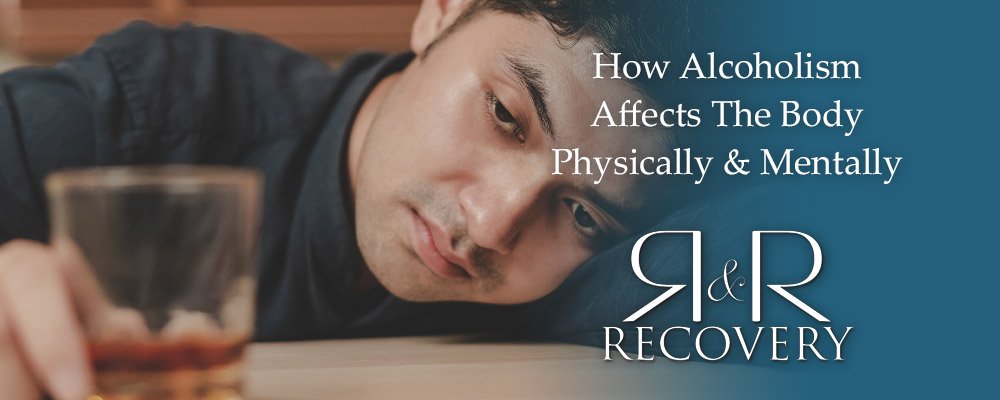
How Alcoholism Affects The Body Physically & Mentally
Alcoholism remains to be a serious issue in America. Excessive consumption of alcohol leads to alcoholism, which then poses serious health issues. As a matter of fact, six people die of alcohol poisoning each day.
What Is Alcoholism And Alcohol Abuse?
Alcohol is rarely harmful when consumed occasionally and in moderation. However, when a person consumes too much to the point of addiction and dependence, it becomes dangerous. The person will suffer physical and mental damages which can extend to friends, loved ones, and family members. It is also a disease that will affect their commitments to work, their relationships, and other responsibilities.
Alcohol abuse disorder is characterized as an unhealthy or dangerous drinking habit. It varies in severity from person to person. When left untreated, it may escalate into a full-blown dependency or alcoholism. It is essential that alcoholism be detected early so that it may be treated accordingly.
How Does Alcoholism Affect The Body?
Physical Effects
Digestive Glands And Endocrine Glands
Too much alcohol in the system can cause abnormal reactions to the digestive glands. The pancreas creates digestive enzymes and excessive alcohol may activate these enzymes. As such, enzymes can buildup and cause inflammation to the pancreas called pancreatitis. This could become a long-term illness that can lead to other complications.
Liver Damage
The liver helps remove harmful substances in the body and this includes alcohol. However, too much alcohol ingested can compromise this cleansing process. Alcoholism may also boost your chronic inflammation and liver disease. High alcohol levels can scar the liver tissues and trigger inflammation.
You may also experience liver disease which is caused by the buildup of waste and toxins in the body.
Abnormal Sugar Levels
The pancreas creates insulin which is responsible for regulating the sugar levels in your body. This means that an inflamed and dysfunctional pancreas can boost the production of insulin, which then leads you to have lower blood sugar levels. The insulin levels can also be reduced when the pancreas fails to create them, which leaves the sugar unregulated and will give you hyperglycemia.
It is important to have normal sugar levels as the physiological functions of other organs are dependent on it. With this, an alcoholic runs the risk of developing diabetes.
Damage To The Central Nervous System
When you drink alcohol, you may notice that your speech becomes slurred and your mobility is reduced. That is because alcohol affects your central nervous system which makes coordination challenging. The repetitive consumption of alcohol can make these damages permanent and long-term.
Another side effect of alcoholism is how it inhibits your brain from retaining long-term memories. Drunk individuals tend to be forgetful or unable to think clearly. Their sense of judgment is also compromised which makes them do risky activities. Chronic alcohol abuse disorder can make these effects more permanent as the brain and the nerves experience irreversible damage and degradation.
Digestive Issues
Your digestive system will also be affected by your alcohol consumption. After all, it is where the alcohol passes through and gets absorbed into the bloodstream. One of the more serious side effects is how alcohol can prevent your intestines from proper food digestion. This means that nutrients and vitamins will not be absorbed quickly, which may result in malnutrition.
Excessive drinking can also cause chronic bloating, gassiness, fullness in the abdomen, diarrhea, and severe constipation.
Mental Health
Alcoholism makes mental health issues worse. It is a contributor to the toxic cycle of people who attempt to self-medicate with alcohol. They use alcohol to treat their anxiety, stress, and depression since alcohol has relaxing effects.
However, the feeling of relief from mental health issues is fleeting. The depression may come back worse than ever once the bliss fades. This continues in a vicious cycle of self-medication. A person’s tolerance will climb which means more alcohol is necessary to satiate them, until it becomes a full-blown addiction.
The most common mental health issues include the following:
- The feeling of depression worsens after the alcohol wears off
- Experiencing hangovers which causes vomiting, nausea, and headaches
- The manifestation of post-alcohol depression or anxiety
- Withdrawal symptoms which include sweating, shaky hands, hallucinations, and sleep issues
How To Know If You Are Drinking Too Much Alcohol
Individuals are recommended to limit alcohol consumption to 14 units per week. This is six glasses of wine or six pints of beer. The alcohol must be spread throughout the week instead of being consumed in one go.
Here are some of the telltale signs that you are becoming an alcoholic:
- You feel like you should cut back your consumption
- Drinking makes you feel bad or guilty
- You have trouble upholding your commitments at work or in school
- Your relationships become strained
- You crave the taste of alcohol at the slightest inconvenience
- You consume more than 14 units each week
- You wake up with nervousness and jitters
- You wish to drink so that you will feel better
How To Change Your Drinking Habits
- Monitor the amount of alcohol you are consuming each week
- Only drink with a good company instead of bad influences
- Stop drinking alcohol
The only way to determine if you have alcohol abuse disorders or alcoholism is by consulting a professional. Contact R&R Recovery for assistance on this matter.




